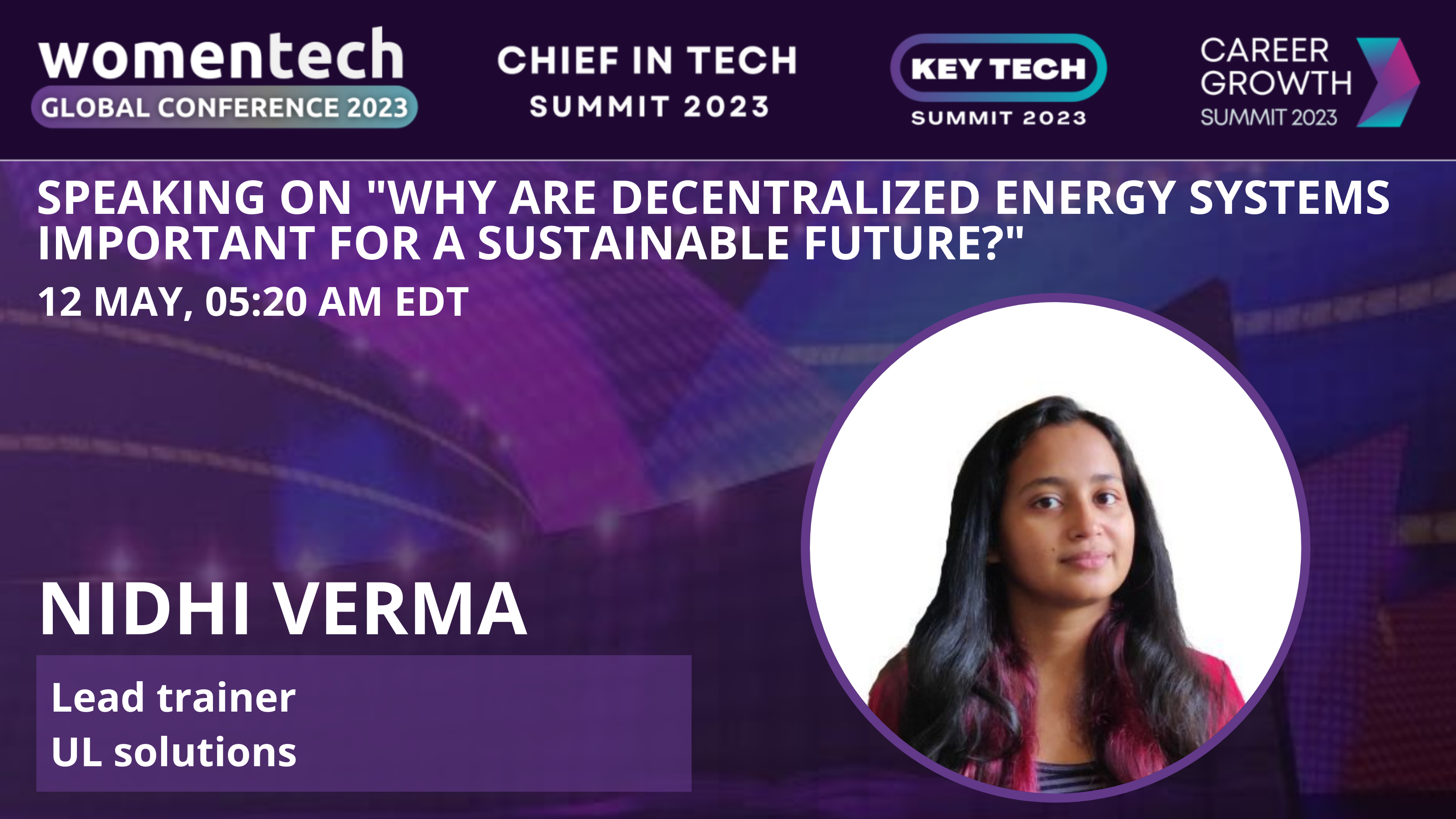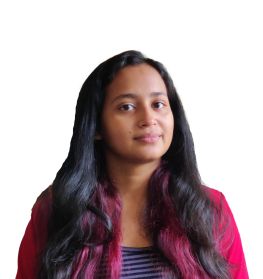Vote by Sharing
Unite 100 000 Women in Tech to Drive Change with Purpose and Impact.
Do you want to see this session? Help increase the sharing count and the session visibility. Sessions with +10 votes will be available to career ticket holders.
Please note that it might take some time until your share & vote is reflected.
Session: Why are decentralized energy systems important for a sustainable future?
Due to increased energy demand, big MW and GW-scale projects are being developed in different parts of the world, but they cannot meet all electricity demand. Electrification has yet to benefit many remote villages and small islands. In such communities, diesel generators are used because they have a low capital cost. This, however, comes with increasing problems related to the burning of fossil fuels. A growing demand for electricity in rural and remote areas would require greater efforts to replace generators.To meet the needs of nearby loads, a decentralized energy system can generate electricity and heat. It is more cost-effective to use these systems in remote regions of the world instead of expensive or impossible grid extensions. An independent system may be grid-connected or grid-independent and may employ a range of electrical generation and storage technologies. It is possible to create electrical generation systems with a variety of combinations, including but not limited to PV arrays, wind turbines, a run-of-river hydro-turbine, generators, batteries, ac-dc converters, electrolyzes and hydrogen storage tanks. Among the examples of decentralized power systems are solar-battery systems for remote villages, wind-diesel systems for remote communities, and natural gas microturbines for factories that are grid-connected.
Decentralized power systems are challenging to design and analyze due to the large number of design options and uncertainty associated with key parameters. There may be economic impacts on the project due to varying loads, volatile fuel prices, unclear resource mapping, and logistic issues. In addition, renewable energy sources may be intermittent, seasonal, and their availability may be unpredictable. The purpose of my presentation is to discuss how to overcome some of these obstacles by considering different scenarios, understanding project requirements, assumptions, and priorities.
Key Takeaways
- Introducing the importance of a decentralized energy system.
- How to choose the right combination of energy systems.
- How to overcome some obstacles.
Bio
Nidhi Verma is an electrical engineer by trade and passion. Having graduated from ITM University in 2015, she now works as a Lead Trainer at HOMER Software Specialists. She has worked with renewable energy technologies since 2015 and has previously been involved with offshore wind projects, integrated wind solar plants, and microgrids. Her experience spans a variety of RE-related fields, including solar, wind, and solar-wind hybrids. She holds a PGDM in renewable energy from TERI and has expertise in research, analysis, consultancy, policy making, and tendering. Currently, she oversees the HOMER software support team for Asia Pacific and provides consulting, advisory support, and training sessions for the software worldwide.


